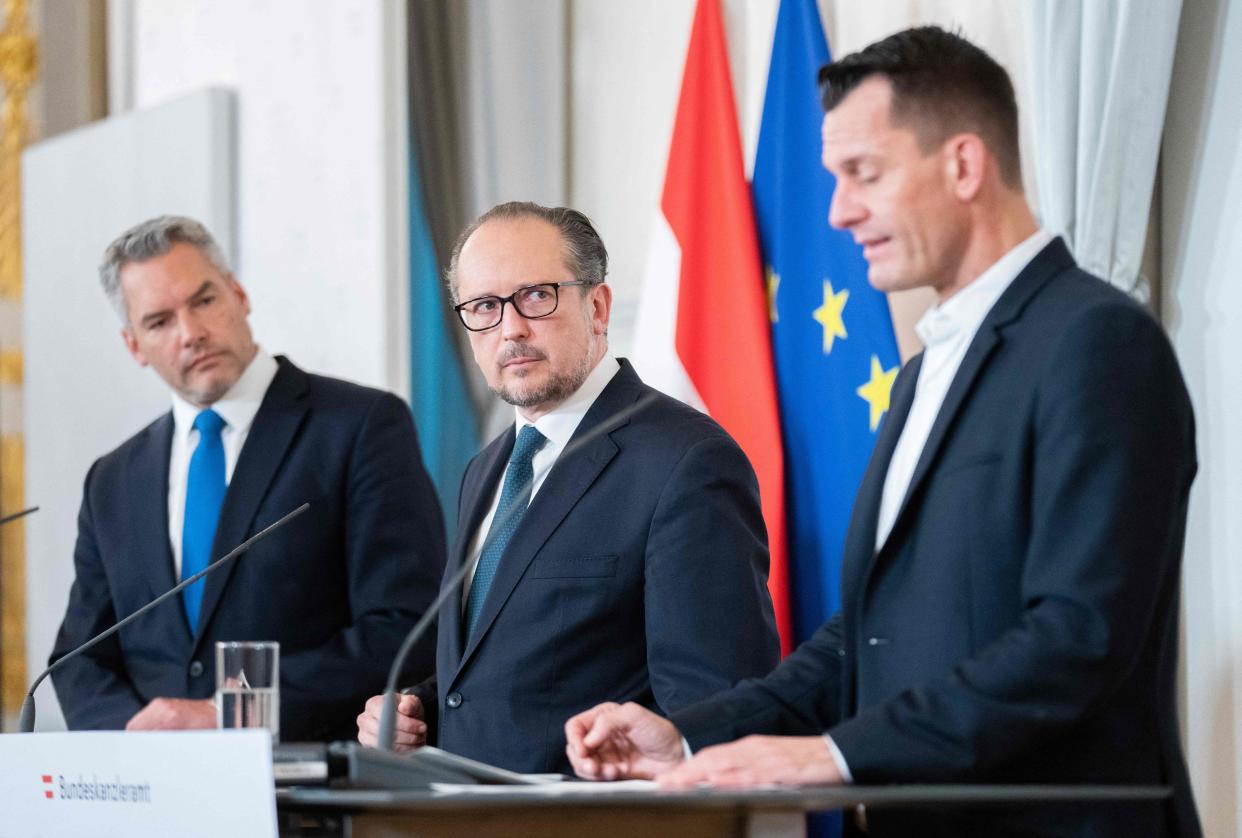Germany could follow Austria’s lockdown for the unvaccinated as 4th wave marks new infection high

Germany is facing pressure to follow Austria’s example and restrict the movement of unvaccinated people to slow infection rates, as a fourth wave of the COVID-19 pandemic threatens to overwhelm Europe's largest economy.
The outbreak hit a new all-time high in Germany on Monday with an incidence rate that for the first time exceeded the threshold of 300 cases per 100,000 over a seven-day period—three times more than the government’s red line prior to the vaccine rollout.
With hospitals filling up, hard-hit regions like Bavaria are transporting COVID patients to South Tyrol, a German-speaking enclave in northern Italy where cases tend to be far lower, thanks to the country's more rigorous coronavirus policies.
“There is a particularly high risk at the moment that intensive care units will fill up primarily with unvaccinated patients and, as hospitals approach capacity, that schools will close again. This will have extremely high long-term economic and social costs,” warned Clemens Fuest, president of the Munich-based Ifo Institute, on Monday.
However, the Ifo Institute, German's leading economic think tank, opposes a return to blanket restrictions that also affect those who are vaccinated.
The export-oriented powerhouse has been particularly hurt by the supply-chain crisis, and blanket restrictions of movement would only exacerbate the slowdown, Fuest argues. Conservative estimates of the pandemic's toll suggest it has so far cost the country €325 billion ($372 billion) in lost economic output. And according to last week’s fall economic forecast by the EU Commission, Germany's output is expected to expand by just 2.7% this year, the slowest rate of all 27 member states.
“National epidemic” status
The idea of restrictions that specifically target the unvaccinated has in recent days gained currency among the parties that are negotiating an agreement to form the next federal coalition government—the Social Democrats (SPD), the Greens, and the liberal Free Democrats (FDP).
The trio came under fire from the recently voted-out conservatives after they supported allowing COVID's "national epidemic" legal classification to lapse on Nov. 25 and replacing the current coronavirus law with a less strict one that removes the legal basis for curfews and comes with an expiration date of March 19, 2022. Chancellor Angela Merkel's party would prefer to see the national-epidemic status prolonged and has also called for a relaxation of Germany's privacy laws to allow employers to ask employees about their vaccination status.
In recent days, the SPD, Greens, and FDP have acceded to the demands of political opponents such as the conservative Bavarian state premier Markus Söder and backed the idea of hitting unvaccinated people with contact restrictions. The parties said they were tightening their bill—which is up for approval later this week—so unvaccinated people would have to show negative test results when using public transport and entering the workplace. They also want employers to allow home working where possible, and back the idea of state-level curfews and limits on access to venues where needed.
Greens cochair Robert Habeck, a key figure in coalition talks, signaled his party’s support to consider a tailored approach in line with those proposed by economists like Fuest. “We’re only planning to end blanket lockdowns that do not differentiate between the vaccinated and unvaccinated,” he told Germany’s public broadcaster ARD on Sunday evening.
Germany has had something of a power vacuum at the federal level since elections in late September; the country's parties typically take months to thrash out new coalitions, and this will be the first three-way coalition in many decades. Critics have suggested that a lack of leadership has contributed to the current wave, thanks to a lack of preparation. On Sunday, Greens cochair Habeck laid into the government's policy of ending free coronavirus testing, and its slowness in rolling out boosters.
The current government is preparing, however, to reintroduce a work-from-home mandate across Germany, according to a Monday AFP report that said the government was consulting closely with the likely future coalition partners. (The SPD, which is the junior partner in the current coalition, is all but certain to lead the new government.) That home-working rule was lifted in July, when the situation looked far rosier than it does now.
Police checks
Amid skyrocketing cases in the country, the head of the region home to the city of Cologne was over the weekend forced to defend authorizing the Nov. 11 celebrations that kick off the Carnival season ahead of Lent. Videos of packed streets of partygoers in the Catholic stronghold went viral on social media with over 2 million views.
https://twitter.com/kniggem/status/1458922737355919360?s=20
Hendrik Wüst, the North Rhine-Westphalia state premier, said progress in vaccination made it unjust to "forbid everything to those who protect themselves, their loved ones, and society with their vaccinations."
With incidence rates that now exceed 850, the government in neighboring Austria instituted a nationwide lockdown for the unvaccinated. Chancellor Alexander Schallenberg defended the measure on Sunday by citing an incidence rate among those who are not inoculated that is above 1,700 and climbing exponentially, versus 383—a figure that is dropping—for the vaccinated.
In order to ensure the lockdown was observed, Interior Minister Karl Nehammer announcing a “dense web of checks” by his law enforcement officers once residents left their homes.
“Every person living in Austria must be cognizant of the fact that they could be controlled by the police,” he warned.
This story was originally featured on Fortune.com

 Yahoo News
Yahoo News 
